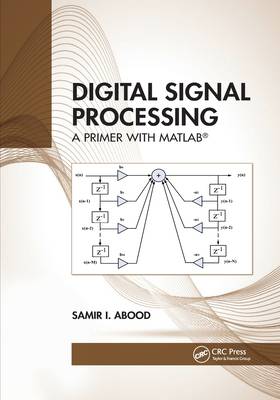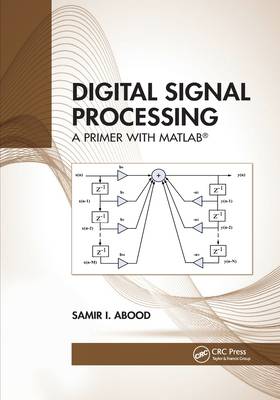
- Retrait gratuit dans votre magasin Club
- 7.000.000 titres dans notre catalogue
- Payer en toute sécurité
- Toujours un magasin près de chez vous
- Retrait gratuit dans votre magasin Club
- 7.000.0000 titres dans notre catalogue
- Payer en toute sécurité
- Toujours un magasin près de chez vous
Description
Digital Signal Processing: A Primer with MATLAB(R) provides excellent coverage of discrete-time signals and systems. At the beginning of each chapter, an abstract states the chapter objectives. All principles are also presented in a lucid, logical, step-by-step approach. As much as possible, the authors avoid wordiness and detail overload that could hide concepts and impede understanding.
In recognition of requirements by the Accreditation Board for Engineering and Technology (ABET) on integrating computer tools, the use of MATLAB(R) is encouraged in a student-friendly manner. MATLAB is introduced in Appendix C and applied gradually throughout the book.
Each illustrative example is immediately followed by practice problems along with its answer. Students can follow the example step-by-step to solve the practice problems without flipping pages or looking at the end of the book for answers. These practice problems test students' comprehension and reinforce key concepts before moving onto the next section.
Toward the end of each chapter, the authors discuss some application aspects of the concepts covered in the chapter. The material covered in the chapter is applied to at least one or two practical problems. It helps students see how the concepts are used in real-life situations.
Also, thoroughly worked examples are given liberally at the end of every section. These examples give students a solid grasp of the solutions as well as the confidence to solve similar problems themselves. Some of hte problems are solved in two or three ways to facilitate a deeper understanding and comparison of different approaches.
Designed for a three-hour semester course, Digital Signal Processing: A Primer with MATLAB(R) is intended as a textbook for a senior-level undergraduate student in electrical and computer engineering. The prerequisites for a course based on this book are knowledge of standard mathematics, including calculus and complex numbers.
Spécifications
Parties prenantes
- Auteur(s) :
- Editeur:
Contenu
- Nombre de pages :
- 340
- Langue:
- Anglais
Caractéristiques
- EAN:
- 9781032337166
- Date de parution :
- 13-06-22
- Format:
- Livre broché
- Format numérique:
- Trade paperback (VS)
- Dimensions :
- 178 mm x 251 mm
- Poids :
- 589 g

Les avis
Nous publions uniquement les avis qui respectent les conditions requises. Consultez nos conditions pour les avis.






